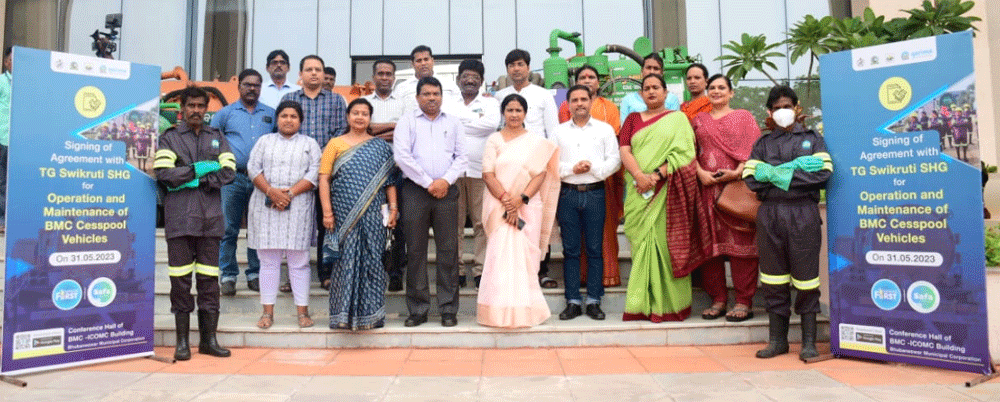Bhubaneswar: Women-led SHGs and Transgender Groups have been integrated across decentralised solid and liquid waste management value chain in a big way, emerging as key service providers in sanitation. Odisha has handed over services to local SHGs spearheaded by women or transgender members. The engagement of Community-Based Organisations representing such vulnerable groups offers a cost-effective way to improve the coverage of sanitation solutions, and also helps the SHGs generate livelihood opportunities for its member.
A partnership between Mission Shakti Self Help Group (SHG) and the Housing and Urban Development Department (H&UDD) in Odisha resulted in empowering women SHGs and other vulnerable groups in the State.
Over 2000 SHGs are now engaged in solid waste segregation, collection and transportation, treatment, reuse and disposal as per standardized norms. The groups are now involved both in service delivery and as implementing partners in a range of urban development programmes – from solid waste to liquid waste management.
In order to smoothly and efficiently integrate Mission Shakti SHGs in key urban programmes, ULB functionaries are regularly oriented to provide opportunities to the members to participate and contribute to the urban sanitation in their local areas. Besides being engaged as Swachh Supervisors, Swachasathis, are also operating and managing Battery operated Vehicles (BOVs) and Micro Composing Centres (MCCs), Micro Recovery Facilities and Construction and Demolition (C&D) Waste Management Plants.
Recognizing their contributions, the Bhubaneswar Municipal Corporation (BMC) has also roped in Transgender Group for the operation and maintenance of 7 cesspool vehicles in the city. They will hire authorised drivers and helpers for each vehicle who will be paid the minimum applicable wage. BMC will impart training to all cesspool vehicle staff on health and hygiene, desludging service, PPE use and related protocols.


